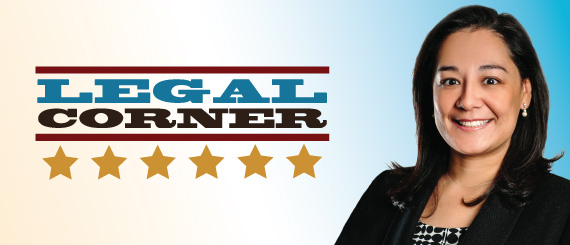
Legal Corner: Summary of the 1487 Complaint Against City of Phoenix
A recent 1487 complaint was filed against the City of Phoenix and the Attorney General has filed a special action against the City. This article provides an overview of the allegation, the City’s response, and the litigation timeline.
Complaint
On December 19, 2019, Rep. Nancy Barto filed a 1487 complaint pursuant to A.R.S. § 41.194.01 against the City of Phoenix alleging the City’s Ordinance G-6650 imposing new fees for drop-off and increasing existing fees on pick-ups by “ride-sharing services” to and from Phoenix Sky Harbor International Airport (“Airport”) violates article IX, § 25 of the Arizona Constitution (“Prop 126”).
Prop 126 was a statewide ballot measure that passed in 2018 and prohibits a city or town from imposing or increasing any sales tax, transaction privilege tax, luxury tax, excise tax, use tax, or any other transaction-based tax, fee, stamp requirement or assessment on the privilege to engage in, or the gross receipts of sales or gross income derived from, any service performed in this state. The measure did not repeal or nullify any tax, fees or other assessments that were in effect on December 31, 2017.
City of Phoenix Response
On January 7, 2020, the City responded to the Attorney General’s request for information and argued that the Ordinance does not conflict with Prop 126 because the fees are not based on “the privilege to engage in” services. Prop 126 expressly prohibits five types of taxes and contains a catch-all provision of “any other transaction-based tax, fee, stamp requirement or assessment.” The City disputes that the provision is all encompassing and argues that it is limited to those of the same kind or nature as the taxes in the list. Since fees are not taxes, Prop 126 doesn’t apply in this context and therefore, the City argued that there is no conflict between the Ordinance and the constitution.
Additionally, the City maintains that it has authority to establish fees for ridesharing companies to access and use the Airport’s roadway system and other infrastructure. Article XIII, § 5 of the Arizona Constitution grants a municipal corporation with authority to own and manage property and business. Prop 126 (ballot language or in the publicity pamphlet) did not state that it would alter the protections of municipal corporations to operate or manage their property as a private business.
Further, federal law allows the Airport to generate revenue for use of its space and facilities and to operate as a self-sustaining enterprise without use of City tax revenues. As with other businesses utilizing Airport space and facilities for commercial purposes, ride-sharing companies have complied with these permit requirements since 2016.
Attourney General's Determination
On January 16, 2020, the Attorney General found that the City’s Ordinance “may violate” state law because the imposition of a new drop-off fee and the increase of a pick-up fee on ride-sharing companies “clearly” conflicts with Prop 126. The Attorney General determined that the City is vested with the authority to impose the types of taxes, fees and assessments; the Ordinance imposes and increases a fee; and the trip fees are “transaction based” within the meaning of Prop 126. Further, the Attorney General does not believe that Prop 126 infringes upon the cities’ constitutional power to engage in businesses or enterprise because it merely prohibits a new or increased transaction-based tax, fee or assessment on a privilege to engage in services.
Although the Attorney General opined that the Office “very likely” believes the City is violating the law, there is no judicial interpretation of Prop 126. Therefore, the Office chose to seek judicial relief from the Supreme Court.
Court Action
On January 22, 2020, the Attorney General filed a Petition for Special Action and a Motion for Interlocutory Stay to enjoin the Ordinance with the Arizona Supreme Court. The parties agreed to stay the implementation of the fees while the matter is litigated. The City filed its Response to the Special Action on Feb 18 and the Attorney General’s Reply is due on March 3. The League is filing an amicus brief, which is due on March 3. Oral argument is set for March 26 at 1:30 p.m. There is no deadline for the court to deliver an opinion so it could take several months before the court issues a decision.




